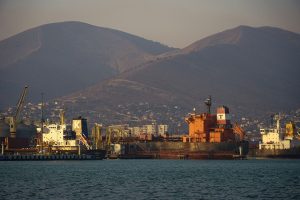Delayed trade payments can pose significant challenges in US-Brazil renewable energy projects. These projects involve various complexities, including regulatory differences, currency exchange risks, and political and economic instability. In order to tackle these challenges and ensure timely trade payments, it is crucial to implement effective strategies and foster collaboration and communication in project management. This article explores the strategies to address delayed trade payments, the importance of timely payments, and provides key takeaways for successful project execution.
Key Takeaways
- Establish clear payment terms to avoid ambiguity and disputes.
- Implement escrow accounts to secure funds and mitigate payment delays.
- Utilize trade finance solutions to manage currency exchange risks.
- Effective stakeholder engagement is crucial for successful project execution.
- Regular project updates foster transparency and help identify and resolve payment delays.
Challenges in US-Brazil Renewable Energy Projects
Regulatory Differences
In US-Brazil renewable energy projects, regulatory differences can pose significant challenges. These differences can include variations in environmental regulations, permitting processes, and compliance requirements. Understanding and navigating these regulatory differences is crucial for project success. It requires effective communication and collaboration between project stakeholders, including government agencies, developers, and investors. Resolving financial deadlocks that may arise due to regulatory differences is essential for smooth project execution. It may involve engaging legal experts and finding mutually agreeable solutions. Overall, addressing regulatory differences requires proactive planning and a flexible approach to ensure compliance and mitigate risks.
Currency Exchange Risks
In US-Brazil renewable energy projects, currency exchange risks can pose significant challenges. Fluctuations in exchange rates between the US dollar and the Brazilian real can impact the profitability of projects and create uncertainty for stakeholders. To mitigate these risks, project teams can consider establishing clear payment terms that account for currency fluctuations and utilize trade finance solutions that provide protection against exchange rate volatility. Additionally, effective communication and collaboration between project stakeholders is crucial to address any potential issues related to currency exchange and ensure timely trade payments. Collaboration and coordination among project participants can help minimize the impact of currency exchange risks and facilitate smooth project execution.
Political and Economic Instability
In addition to regulatory differences and currency exchange risks, political and economic instability can also contribute to delayed trade payments in US-Brazil renewable energy projects. These instabilities can create uncertainties in the business environment, leading to delays in payments and potential financial losses for project stakeholders. To address this challenge, it is essential for project managers to establish clear payment terms and implement robust risk management strategies. Payment recovery mechanisms should be in place to mitigate the impact of any disruptions caused by political and economic instability.
Strategies to Address Delayed Trade Payments
Establishing Clear Payment Terms
In order to address the issue of delayed trade payments, it is crucial for US-Brazil renewable energy projects to establish clear payment terms. This involves outlining the specific payment deadlines, methods, and currencies to be used. By clearly defining these terms, both parties can ensure a smooth payment process and minimize the risk of disputes. Additionally, it is important to include provisions for collection agencies in case of non-payment. This can help expedite the recovery of outstanding payments and prevent accounts from becoming write-offs. By implementing these measures, project stakeholders can enhance financial stability and promote timely payments.
Implementing Escrow Accounts
One strategy to address delayed trade payments in US-Brazil renewable energy projects is implementing escrow accounts. By establishing a third-party account to hold funds, both parties can mitigate the risk of non-payment or payment delays. This provides a level of security and assurance for suppliers and contractors involved in the project. Additionally, escrow accounts can help facilitate smoother transactions by ensuring that payments are released upon meeting specific conditions. This approach helps to build trust and confidence between U.S.-Brazil stakeholders.
Utilizing Trade Finance Solutions
In order to address delayed trade payments in US-Brazil renewable energy projects, trade finance solutions can play a crucial role. These solutions provide secure B2B accounts that facilitate smooth transactions and minimize payment delays. By utilizing trade finance solutions, project stakeholders can ensure timely and efficient payments, reducing financial risks and enhancing project success. Additionally, these solutions offer the advantage of streamlining payment processes and providing transparency throughout the project lifecycle. With the implementation of trade finance solutions, project teams can focus on their core objectives and overcome the challenges associated with delayed trade payments.
Collaboration and Communication in Project Management
Regular Project Updates
Regular project updates are essential for effective communication and collaboration in US-Brazil renewable energy projects. These updates provide stakeholders with timely information on project progress, potential challenges, and any necessary adjustments. By maintaining a consistent flow of communication, project teams can address issues promptly, identify opportunities for improvement, and ensure that all parties are aligned towards project goals. Additionally, regular updates help to build trust and transparency among stakeholders, fostering a positive working relationship. Through open and frequent communication, project teams can minimize disputes, resolve payment delays, and maintain momentum towards successful project completion.
Resolving Disputes and Payment Delays
Resolving disputes and addressing payment delays is crucial in ensuring the smooth progress of US-Brazil renewable energy projects. One effective strategy is to engage collection agencies who can skillfully mediate disputed claims and negotiate fair resolutions. By involving experienced professionals, project stakeholders can avoid the costly expense of private mediators and maintain the timely flow of trade payments. Additionally, establishing clear payment terms, implementing escrow accounts, and utilizing trade finance solutions can further mitigate the risks associated with disputes and payment delays. Regular communication and collaboration among stakeholders are also key to resolving issues promptly and ensuring successful project outcomes.
Conclusion
Importance of Timely Trade Payments
Timely trade payments are crucial for the success of US-Brazil renewable energy projects. Delayed payments can disrupt cash flow, hinder project progress, and strain relationships between project stakeholders. To ensure smooth operations, it is essential to establish clear payment terms, implement efficient payment mechanisms such as escrow accounts, and consider trade finance solutions. By prioritizing timely trade payments, project teams can mitigate risks, maintain financial stability, and foster a conducive environment for collaboration and growth.
| Key Benefits of Timely Trade Payments |
|---|
| – Ensures cash flow stability |
| – Minimizes financial risks |
| – Enhances trust and credibility |
| – Facilitates smooth project execution |
Timely payments are the lifeblood of renewable energy projects, fueling progress and enabling seamless collaboration between US and Brazil. By prioritizing financial discipline and utilizing effective payment strategies, project teams can maximize the potential of these projects and contribute to a sustainable future.
Key Takeaways
In conclusion, timely trade payments are crucial for the success of US-Brazil renewable energy projects. Collaboration and communication play a vital role in overcoming challenges such as regulatory differences, currency exchange risks, and political and economic instability. Establishing clear payment terms, implementing escrow accounts, and utilizing trade finance solutions are effective strategies to address delayed trade payments. Effective stakeholder engagement, regular project updates, and resolving disputes and payment delays are essential for project management. It is important to recognize the export-import challenges and find innovative solutions to ensure smooth transactions. Looking ahead, the future outlook for US-Brazil renewable energy projects is promising, with opportunities for growth and sustainability.
Future Outlook
Looking ahead, the future of US-Brazil renewable energy projects appears promising. With a growing focus on sustainability and the need for clean energy sources, there is a strong demand for collaboration between the two countries. However, it is crucial to address the challenges mentioned earlier and establish effective strategies to ensure timely trade payments. By implementing clear payment terms, utilizing trade finance solutions, and fostering collaboration and communication in project management, the industry can overcome obstacles and pave the way for successful ventures. In conclusion, US-Brazil renewable energy projects hold immense potential, and by addressing the key challenges and adopting proactive measures, both countries can benefit from this mutually beneficial partnership.
In conclusion, debt collection can be a complex and challenging process. However, with our debt collection solutions made simple, you can recover your debts quickly and efficiently. Our team of experts specializes in no recovery no fee debt collections, ensuring that you only pay when we successfully collect your debts. Don’t let unpaid debts affect your business any longer. Take action today and visit our website for more information on how we can help you with your debt collection needs.
Frequently Asked Questions
What are the main challenges in US-Brazil renewable energy projects?
The main challenges in US-Brazil renewable energy projects include regulatory differences, currency exchange risks, and political and economic instability.
How can delayed trade payments be addressed in these projects?
Delayed trade payments can be addressed in US-Brazil renewable energy projects by establishing clear payment terms, implementing escrow accounts, and utilizing trade finance solutions.
What is the importance of effective stakeholder engagement in project management?
Effective stakeholder engagement is important in project management as it helps ensure collaboration, alignment of goals, and timely decision-making.
Why are regular project updates necessary in US-Brazil renewable energy projects?
Regular project updates are necessary in US-Brazil renewable energy projects to keep stakeholders informed about progress, identify and address issues early on, and maintain transparency.
How can disputes and payment delays be resolved in these projects?
Disputes and payment delays in US-Brazil renewable energy projects can be resolved through open communication, negotiation, and, if necessary, legal remedies as outlined in the project contracts.
What is the future outlook for US-Brazil renewable energy projects?
The future outlook for US-Brazil renewable energy projects is promising, as both countries continue to prioritize clean energy initiatives and work towards strengthening bilateral cooperation.





